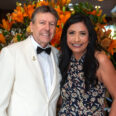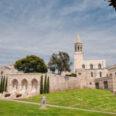 If you were asked to define Judaism in one line, what would you say? Is it unique among religions, and if yes, how? What has it brought to the table of religious discourse?
If you were asked to define Judaism in one line, what would you say? Is it unique among religions, and if yes, how? What has it brought to the table of religious discourse?
Holiday Naming
Those who have named children, companies or products, or have picked titles for books or events, know the amount of thought that goes into the process. Which name best expresses the uniqueness of this item, person, or gathering? How do I capture the essence of the name-bearer?
The same is true regarding Jewish holidays.
The G‑d-given names of the dates we celebrate, spread throughout the Jewish calendar, were chosen to convey the central theme and unique message of that particular holiday.
(So that Passover, for example, which teaches freedom, is called in the Torah Chag HaMatzot [the “Festival of the Matzahsâ€], after the matzah or unleavened bread we eat. The name recalls the haste with which G‑d redeemed our people from Egyptian bondage, and the simplicity of the bread [called “poor man’s breadâ€] bespeaks humility—the key to achieving freedom. The names of other Jewish holidays are winners as well.)
What about the holiday of Sukkot, named after the sukkah, the outdoor hut we call home throughout the week-long holiday of Sukkot?
Why is this mitzvah chosen to represent the inner message of the holiday—what of the holiday’s other mitzvot? There’s the biblical command to take the Four Kinds, the mitzvah to be extra joyful, there’s the water-drawing celebrations, etc. These rituals and mitzvot also seemingly define the manner in which we celebrate this momentous festival and the attitude and mood that pervades it, not merely the mitzvah of sukkah.
If anything, the mitzvah of sukkah—and the name Sukkot—seems to point only to the holiday’s setting and venue. Why, then, did the Torah choose to name the holiday after the mitzvah of sukkah, a mitzvah that seemingly demands of us no more than the switching of our location?
But that’s what Judaism is all about.
Do whatever you normally do, all those mundane activities—but move it to the holy shade of the sukkah, and you’ve done a mitzvah. Same is true with everyday life: do whatever you normally do, all those mundane activities—but move it to the realm of holiness.
The sukkah emphasizes that almost every act of living can be holy, and that no act (that isn’t expressly forbidden by the Torah or the sages) is intrinsically “mundane.â€
It teaches that holiness need not be imported from heaven, but is to be readily found here on earth. Holiness need not be created, for it’s already extant in creation, waiting only to be accessed and revealed.
“Holiness†is a fancy word that describes perspective and choice of function, and has much to do with motive and intent. Take the act of eating for example. How I view my (kosher) food determines its level of “holinessâ€; it can be gluttonous and self-serving, or sacred and G‑d-serving. The difference is purely in the mind.
The sukkah thus teaches that physical existence need not be transformed into something it is not; it needs only to be looked at differently, recognized for what in essence it truly is.
In sum: The sukkah is not just about a shift of location for living life, but a shift of perspective on living life.
To connect with G‑d, so long as that is your objective, you don’t need to draw water, you can drink water; and you don’t have to bind and bless fruit, you can eat them. For material life doesn’t need to be renovated or its sanctity generated—only activated.1
And about Judaism in one line:
Here’s how the Lubavitcher Rebbe answered the question, “How would you define Judaism in a nutshell?â€
“Judaism is not something abstract,†the Rebbe replied, “detached from ordinary everyday activities. Judaism must concern the Jew twenty-four hours a day, in every environment and in every activity. This is the Jewish way of proclaiming G‑d is one!â€
What’s in It for Me?
Many of us tend to dichotomize and compartmentalize our lives, interests, values, and even personalities: there’s the secular and the sacred, the spiritual and the material, the refined and the natural. There’s who I am in the synagogue, and there’s who I am on the street. Often, the two seem hardly related.
To be holy is to be holistic.
Just as G‑d is one, we must be one.
A chassidic lumber merchant in Riga was calculating his accounts. Under a column of figures, he inadvertently wrote, “Total: Ein od milvado—there is none besides Him!†In response to his assistant’s raised eyebrow he said: “It is considered perfectly natural that during prayer one lets his mind wander off to his lumber in Riga. So what is so surprising if in the middle of business dealings, my mind is invaded by thoughts of the unity of G‑d . . . ?â€
– By Mendel Kalmenson
About Rabbi Mendel Kalmenson
Rabbi Mendel Kalmenson has traveled Europe, Asia and South America, reaching out to Jews in the remotest areas. He now resides in Crown Heights with his wife Chanale, daughter Geulah, and son Dov. Mendel is an editor at the Judaism Website—Chabad.org.
Chabad of Pasadena, 1090 East Walnut Street, Pasadena, (626) 564-8820 or visit www.chabadpasadena.com.














 0 comments
0 comments


